If the War of 1812 played a more important role in American public memory, it would likely have earned a less generic name. The war is the only one in American history designated simply by the year of its commencement, and for nearly a hundred years after it ended in 1815, its name hardly even qualified as a proper noun. Historian Matthew Dennis examines the legacies of the War of 1812 and the space it occupies in American memory.
-
Article 1: A war that looms small in American memory
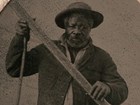
If the War of 1812 played a more important role in American public memory, it would likely have earned a less generic name. The war is the only one in American history designated simply by the year of its commencement, and for nearly a hundred years after it ended in 1815, its name hardly even qualified as a proper noun. Read more
-
Article 2: Short term memory: Eeking a victory from the depths of defeat

If the War of 1812 was largely a series of military disasters for the United States, the Treaty of Ghent that ended it was a windfall and godsend. Signed in Belgium on Christmas Eve in 1814, copies arrived in Washington on February 14, 1815. The Senate ratified the pact two days later, and forgetting could begin. Read more
-
Article 3: New nationalism in an "Era of Good Feelings"
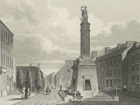
“Victory” in the War of 1812 unleashed a wave of American patriotism after 1815, ironically emphasizing the triumph of the American Revolution more than the split decision of the “Late War.” The glories of the latter struggle—such as they were—were rendered indistinct as the war was subsumed by Revolutionary memory. The years 1812–1815 seemed to ratify the popular memory of 1776 and 1783, igniting new nationalism. Read more
-
Article 4: Veterans and the democratization of memory
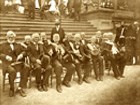
Informal gatherings of veterans, organized locally, took place throughout the 1800s and kept memories of the War of 1812 alive. Read more
-
Article 5: Retroactive pedigrees: the supremacy of naval power
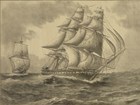
One of the most unlikely celebrations of the War of 1812 was of American naval prowess. Few expected the small American Navy to have the success that it did in facing the well-trained Royal Navy, but this served posterity well. Especially as the United States emerged as a global power in the early 20th century, co-opted tales of the War of 1812 functioned easily to further political agendas. Read more
-
Perry's Victory & International Peace Memorial
Article 6: Letting bygones become bygones
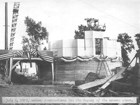
Changing circumstances and current demands—particularly the challenges of a world war—seemed to encourage former combatants to forgive and forget. Read more
-
Fort McHenry National Monument and Historic Shrine
Article 7: Creating symbols of the American Nation
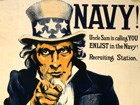
The War of 1812 served as an important turning point for establishing a sense of sovereignty and a shared history among Americans. But it also helped to develop distinct mythology for the young nation -- from Uncle Sam to the Star-Spangled Banner. Read more
